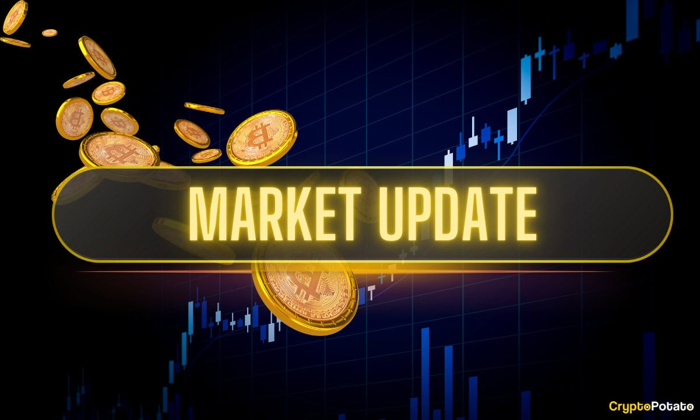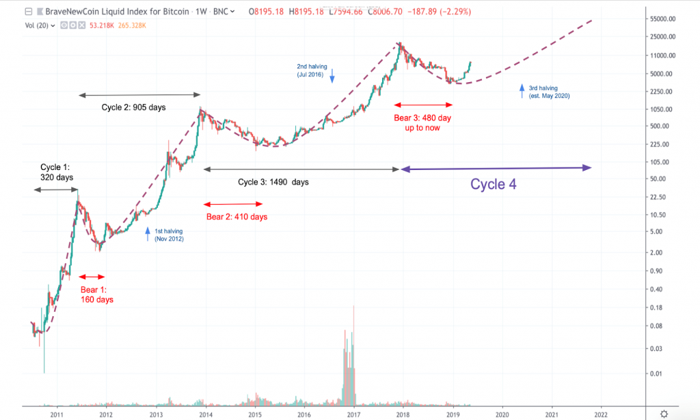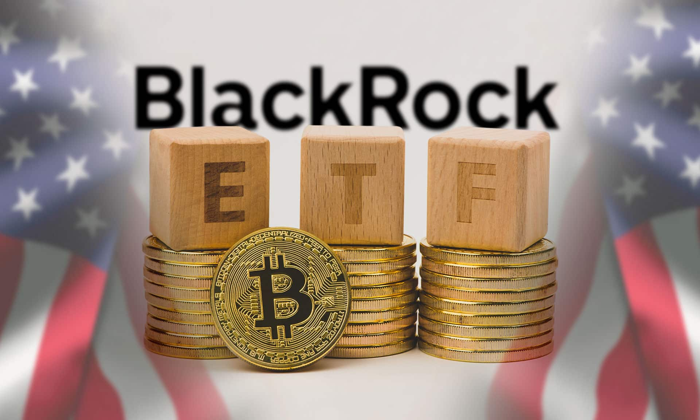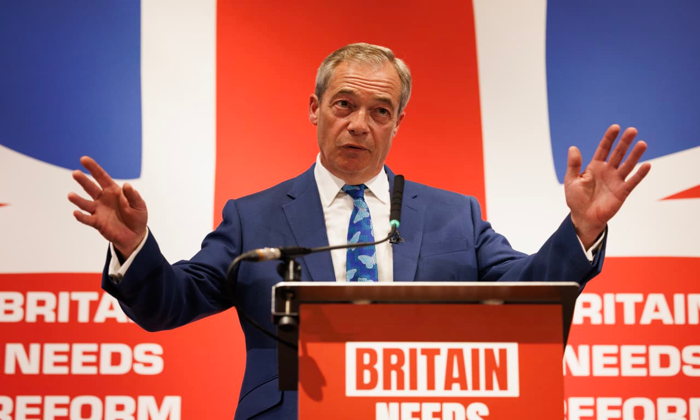In this week’s Crypto Market Weekly Recap, we observe the chaotic yet transformative landscape of cryptocurrency in response to external factors like tariffs and regulatory changes. As the market grappled with a dramatic escalation of U.S.-China tariffs, Bitcoin showed noteworthy resilience, stabilizing at $82,000 by week’s end. The recent approval of ETH ETF options also marked a significant step in legitimizing cryptocurrencies as viable investment assets. Alongside these developments, in-depth analyses of DeFi trends revealed how the decentralized economy managed to attract millions despite overall market panic. This week highlights not only the volatility inherent in the cryptocurrency world but also the sector’s growing relevance in the broader economic landscape, making it essential reading for anyone interested in cryptocurrency news.
In this weekly summary of the crypto market, we delve into the pivotal happenings that influenced digital currencies and their valuations. The past week was largely characterized by the repercussions of international tariff disputes, which weighed heavily on market sentiments. Notably, Bitcoin displayed characteristics akin to a safe haven asset, rising against the backdrop of economic uncertainty. Furthermore, the affirmative shift towards regulatory acceptance, evidenced by the ETH ETF endorsement, signals a maturing market that is adapting to changing conditions. This analysis will provide insights into market dynamics, along with emerging trends in decentralized finance that are shaping the future of digital assets.
Crypto Market Weekly Recap: Navigating Tariff Turbulence
In the past week, the crypto market experienced a rollercoaster ride as tariff disputes dominated the headlines. Initially, the announcement of significant tariffs by China on U.S. goods sent shockwaves through the markets, resulting in substantial price drops for both stocks and cryptocurrencies. Bitcoin, which dropped sharply at first, ultimately demonstrated remarkable resilience amidst the turmoil, recovering to a price of $82,000 by the week’s end. Investors and analysts are now contemplating whether Bitcoin should be classified as a safe haven asset akin to gold or whether it will be influenced by the same risks that plague the traditional markets.
As the dust settled from the tariff-related chaos, the crypto market showed signs of stabilization. Analysts highlighted how the pause on new tariffs for 90 days provided much-needed relief, encouraging a rebound in crypto prices. This week’s events reaffirmed the jury’s still out on Bitcoin’s role as a potential safe haven. Many believe that its strong recovery reflects not just a bubble of speculation but a growing recognition of its value in uncertain economic times. Overall, the crypto market’s strength amid geopolitical tensions points toward an evolving landscape where digital currencies may carve out a more significant space in macroeconomic finance.
Bitcoin’s Resilience Amid Economic Uncertainty
Bitcoin has repeatedly showcased its ability to rebound from adverse conditions, and the latest tariff discussions have only reinforced this narrative. After falling in response to initial tariff announcements, Bitcoin’s resurgence back to $82,000 indicates a growing investor confidence that many previously doubted. This resilience could be viewed as a testament to Bitcoin’s status as a decentralized asset, one that can withstand external pressures while attracting new capital during uncertain times. Although there are ongoing debates about its classification as a risk asset, it’s evident that Bitcoin continues to draw attention as a possible hedge against economic instability.
Investors are increasingly recognizing the potential of Bitcoin as a long-term investment, not merely as a speculative asset subject to volatility. The discussions around tariffs have highlighted Bitcoin’s role not only within the crypto landscape but also against traditional financial instruments. As the mainstream finance community begins to acknowledge Bitcoin’s unique properties, it has garnered a reputation for being a ‘digital gold,’ creating a belief that it can serve as a stabilizing force in turbulent economic times despite its inherent volatility.
ETH ETF Approval: A Paradigm Shift in Cryptocurrency Investment Strategies
This past week marked a significant moment in the cryptocurrency world with the approval of ETH ETF options. Following a protracted and highly scrutinized application process, the SEC’s decision opens up fresh avenues for institutional investment in Ethereum. This development not only validates Ethereum’s standing in the market but also signals an increasing acceptance of cryptocurrencies within mainstream financial frameworks. The landscape of digital asset trading is evolving, and the endorsement of ETH ETFs emphasizes the enduring potential for Ethereum as a go-to asset for both retail and institutional investors.
The approval of ETH ETF options could have a ripple effect across the DeFi landscape, potentially providing much-needed liquidity and allowing Ethereum to exert more influence over decentralized finance applications. With institutional participants now able to invest in Ethereum via standard investment avenues, expectations around price movements, network developments, and transaction volume may see a significant uptick. As Ethereum garners more institutional interest, the dynamics that define its market performance could evolve dramatically, paving the way for DeFi trends that are aligned with traditional financial instruments, thus bridging the gap between the two worlds.
The Implications of Tariff Wars on the Crypto Ecosystem
The tension surrounding international trade and tariffs has significant implications on the cryptocurrency ecosystem. Initially, the announcement of high tariffs led to widespread market panic, affecting the valuations of various cryptos and compounding investor fears. However, analysts are now beginning to explore how these geopolitical shifts could shape the future of digital currencies. The reaction from the crypto markets suggests that traders are closely monitoring macroeconomic indicators, indicating that such factors will likely continue playing a crucial role in influencing crypto valuation.
Moreover, as investors seek refuge in decentralized assets during times of geopolitical strife, the ongoing tariff war may set a precedent for how cryptocurrencies behave under future economic pressure. Bitcoin and Ethereum’s resilience against tariff-induced volatility could provoke a shift in perception, encouraging more investors to see cryptocurrencies as viable alternatives during uncertain times. This newfound recognition may lead to increased adoption rates, further solidifying the role of digital assets within diversified investment portfolios.
DeFi Trends: How Decentralized Finance Defied Market Carnage
The recent decline induced by tariff discussions failed to dampen the spirit of decentralized finance (DeFi), which displayed remarkable strength and innovation amidst market turmoil. As traders rushed to secure gains or limit losses, a substantial shift towards DeFi platforms was noted. Many investors turned to decentralized protocols, believing that they could bypass traditional financial barriers, ultimately leading to the influx of capital into deFi projects. This trend illustrates a growing confidence in DeFi capabilities to function outside of conventional economic frameworks.
The resilience of DeFi in the face of economic downturns can be tied to several factors, including its non-dependence on the centralized banking system and its ability to provide users access to liquidity and financial services, regardless of external conditions. Events like the legal victories associated with prediction markets, as reported this week, further highlight the dynamic nature of DeFi, enabling a landscape where innovation can thrive even when the broader market faces challenges. As more users flock to DeFi, it becomes increasingly clear that this sector is not just a niche but an essential component of the overall crypto market.
Frequently Asked Questions
What are the key takeaways from the latest Crypto Market Weekly Recap concerning Bitcoin’s resilience?
The latest Crypto Market Weekly Recap highlights Bitcoin’s remarkable resilience amidst tariff tensions, as it managed to recover back to approximately $82,000 by week’s end. Analysts discussed whether this behavior indicates Bitcoin’s role as a ‘safe haven’ asset or its correlation to risk assets, but its ability to withstand market fluctuations was evident.
How did the ETH ETF approval impact the Crypto Market Weekly Recap?
In the most recent Crypto Market Weekly Recap, the approval of ETH ETF options marked a significant milestone, bringing excitement and optimism into the market. This approval, which follows a lengthy delay, is expected to encourage institutional investment in Ethereum, further integrating it into mainstream finance.
What was the tariff impact on the crypto market this week according to the Crypto Market Weekly Recap?
According to the Crypto Market Weekly Recap, tariffs initially caused a significant drop in both stocks and cryptocurrencies. However, the pause on new non-China tariffs allowed for a market rebound, demonstrating how macroeconomic factors can notably influence crypto prices like Bitcoin.
Can you summarize the DeFi trends mentioned in the Crypto Market Weekly Recap?
The Crypto Market Weekly Recap shed light on resilient DeFi trends during times of market panic. Reports indicated that traders poured millions into decentralized finance projects, showcasing their robustness even when faced with significant market volatility, effectively ‘defying’ the broader market downturn.
What significant events were covered in the Crypto Market Weekly Recap related to cryptocurrency regulation?
The Crypto Market Weekly Recap detailed the appointment of Paul Atkins as the new SEC chair and the controversial decision by the Department of Justice to shut down its crypto enforcement unit, raising concerns about regulatory diligence. Notably, the approval of ETH ETF options was also a highlight, signaling positive regulatory developments for the cryptocurrency landscape.
| Key Point | Details |
|---|---|
| Tariff Impacts | China imposed 125% tariffs on U.S. goods, leading to a market decline. However, after the pause on new tariffs, there was a market rebound. |
| Bitcoin Resilience | Bitcoin held its ground at $82,000, showing characteristics of a ‘safe haven’ amidst market fluctuations. |
| XRP ETF and Trading Growth | First XRP ETF listed in the U.S., with Teucrium’s leveraged fund raising $5 million on its first trading day. |
| SEC Management Changes | Paul Atkins confirmed as new SEC chair, while ETH ETF options received approval after delays. |
| Market Analysis | Coverage included analysis of market trends such as the U.S. 10-Year Yield and the impact of decentralized finance (DeFi). |
Summary
The Crypto Market Weekly Recap highlights significant events where the crypto market not only endured the challenges posed by tariff wars but also showcased its growing importance in global finance. This week saw Bitcoin maintaining its value, new ETFs gaining traction, and political shifts within the SEC, all underscoring an evolving landscape. As the crypto market adapts and responds to both political and economic pressures, it increasingly solidifies its role in shaping future financial frameworks.
Welcome to our Crypto Market Weekly Recap, where we dive into the dynamic developments that shaped the cryptocurrency landscape this week. Recent cryptocurrency news has been dominated by discussions surrounding tariff impacts on crypto markets, with China’s implementation of a staggering 125% tariff on U.S. goods causing initial panic. However, as the week progressed, Bitcoin demonstrated remarkable resilience, reclaiming its position at $82,000 amid a temporary halting of new tariffs. Additionally, significant strides were made in financial innovation with the approval of ETH ETF options, further solidifying the presence of cryptocurrencies in mainstream finance. As decentralized finance (DeFi) trends continue to evolve, it’s clear that the crypto market is adapting and thriving even under pressure.
In this week’s summary of the cryptocurrency sector, we explore the latest shifts and trends that have defined the market landscape. The effects of ongoing trade wars, particularly the recent tariff escalations from China against U.S. imports, have ignited discussions regarding the stability and volatility of digital currencies. Bitcoin, often seen as a safe haven, showcased its ability to recover and stabilize at crucial price points, sparking debates among analysts about its role in the financial ecosystem. Furthermore, the approval of ETH exchange-traded funds highlights a growing acceptance of cryptocurrencies within traditional finance, emphasizing the need for updates and innovations in regulatory frameworks. As decentralized finance continues to gain traction, the intersection of these elements reflects a rapidly evolving landscape poised for both challenges and opportunities.















